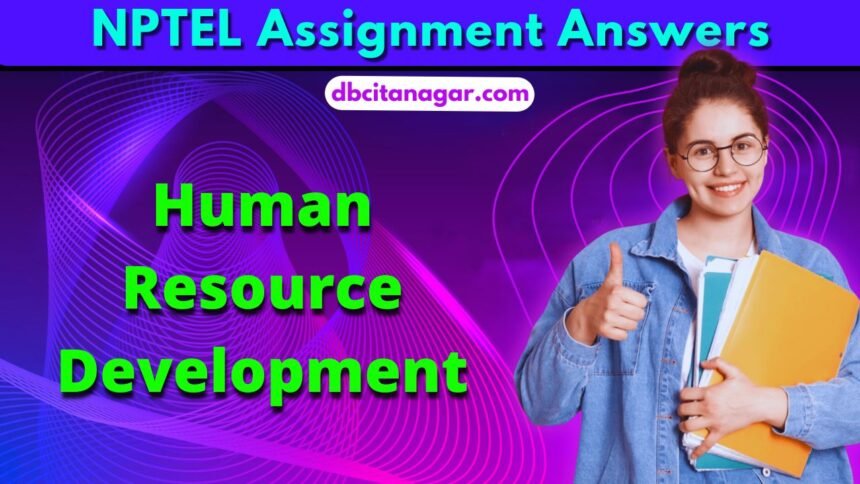NPTEL Human Resource Development Week 11 Assignment Answers 2024
1. What is the definition of Organizational learning?
a. development of new knowledge and acquisition of new insights that have the potential to influence financial benefit changes.
b. research the old knowledge and topics that can influence changes and improve organizational performance.
c. development of new knowledge acquisition and new insights that can influence behavioral changes and thus improve organizational performance
d. Develop technical skills to increase an organization’s revenue.
Answer :- For Answers Click Here
2. Rules, contracts, and documents are examples of which type of knowledge:
a. tacit knowledge
b. explicit knowledge
c. knowledge sharing
d. procedural knowledge
Answer :- For Answers Click Here
3. “The largest database of any organization” situated in human resources is known as:
a. explicit knowledge
b. HR database management system
c. artificial intelligence
d. tacit knowledge
Answer :-
4. “Lower-level Learning” and “Not-Strategic Learning” are the characteristics of the type of
organizational learning:
a. single loop learning
b. double loop learning
c. triple loop learning
d. multi-loop learning
Answer :-
5. Define the term triple-loop learning:
a. when errors are detected and corrected, but firms continue with their present policies and goals.
b. the organization questions and modifies its existing norms, procedures, policies, and objectives
c. organizational members “learn how to learn’ and form new beliefs that impact their thinking and, therefore, what they do and how they do it.
d. when people get better at a particular activity through practice or training
Answer :-
6. Which of the following is not a component of a learning organization:
a. can be achieved through quick management training
b. it is a multi-level concept
c. based on continuous knowledge transfer and adaptation
d. requires specific HRM policies supportive of learning culture
Answer :- For Answers Click Here
7. Which of the following is an element of an information processing system:
a. development
b. strategy
c. distribution
d. communication
Answer :-
8. Which of the following is NOT a subsystem of Experiential Learning in the roadmap of organizational learning:
. Organizational self-appraisal
b. Scanning
c. Unintentional learning
d. Organizational Experiments
Answer :-
9. Supply chains, the government, and professional societies form a part of which of these workplace learning communities:
a. networks and partnerships
b. the individual
c. the workgroup
d. the enterprise
Answer :-
10. According to Senge, which of the following is not one of the five disciplines of Learning Organization:
a. shared mission
b. systems thinking
c. mental models
d. team learning
Answer :- For Answers Click Here
11. Which of the following is a characteristic of a complex adaptive system:
a. dynamic behavior
b. quantum leaps
c. new product
d. new service
Answer :-
12. The gap between aspirations and current reality in personal mastery is known as:
a. creative tension
b. inquiry
c. superego
d. yin & yang
Answer :- For Answers Click Here
13. Which of the following is one of the five main learning activities in which learning organizations are skilled? According to Garvin:
a. communication
b. adaptability
c. systemic problem-solving
d. problem analysis
Answer :-
14. Using data and statistical analysis is a tool used by which method of building a learning organization:
a. Experimentation
b. Learning from others
c. Learning from Past Experience
d. Systematic Problem Solving
Answer :-
15. Which of the following is true in the context of double-loop learning:
a. lower-level learning
b. adaptive learning
c. it involves strategic learning
d. the firm continues with present policies
Answer :- For Answers Click Here







